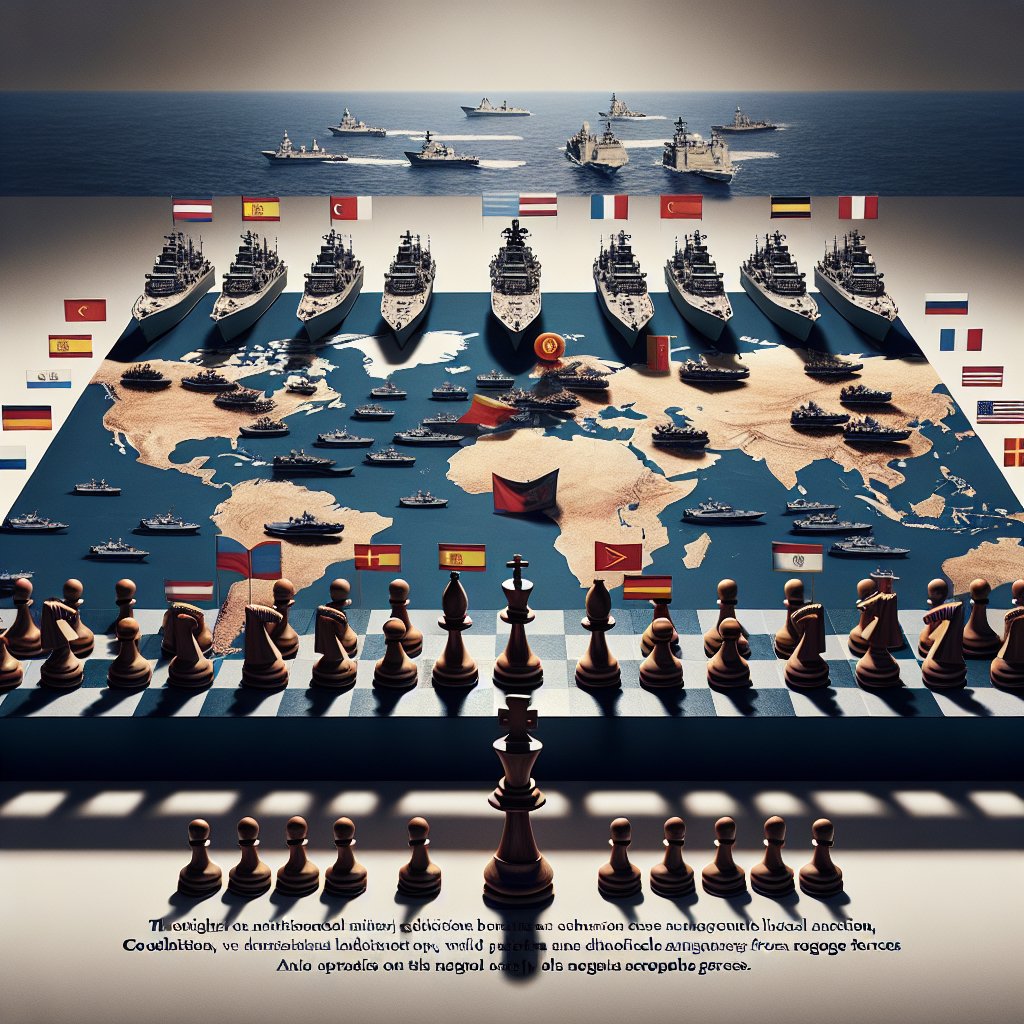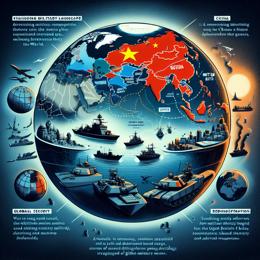Content created by AI
Spain Declines to Join US-Led Coalition in Red Sea, Citing Domestic Political Dynamics
In a strategic move that diverged from the increasing international military collaboration within the Red Sea, the Spanish government announced on Sunday its decision not to participate in a US-led coalition. This coalition, a substantial multinational effort comprising 20 countries, was established to secure a major maritime corridor from the disruptive actions of Yemen's Huthi rebels. The coalition's purpose centers on protecting the Red Sea shipping lane, which is essential for global trade and has recently witnessed a series of strikes attributed to the Iran-supported Huthis.
The Huthis have justified their attacks by expressing solidarity with the Palestinians amidst conflict escalation in Gaza. Spain’s withdrawal from the coalition highlights a nuanced approach to international military cooperation, sparked by internally-focused political considerations. Reports from Spain suggest that the current administration, led by Pedro Sanchez, is maneuvering through a delicate phase in domestic politics while attempting to bolster a government coalition involving the radical left party Sumar. Sumar has taken a firm stand against US foreign policy, which Sánchez's government seems to be respecting in this decision.
A Spanish defence ministry spokesman, addressing the AFP, confirmed Spain's position of non-participation without providing further elucidation regarding the factors influencing this choice. However, Spanish media outlets and political analysts have broadly interpreted the decision as a direct outcome of the ideological alignments required to form a stable coalition government in the nation.
The reaction from the Huthi faction demonstrates the potential geopolitical ramifications of such decisions. Deputy foreign minister Hussein al-Ezzi publicly lauded Spain's refusal to align with what he described as "American and British lies on the issue of maritime navigation."
This recent development was further clarified by Pentagon spokesman Major General Pat Ryder, who, earlier on Thursday, elucidated the operational objectives of the coalition forces. Characterizing their role as a maritime "highway patrol", Ryder explained that coalition efforts would be primarily preventive, patrolling the Red Sea and the Gulf of Aden. The purpose of these patrols is to provide a response and assist commercial vessels traversing these international waters, ensuring their unimpeded journey through a region that is crucial for the global economy.
Spain's standpoint sends a wave of consideration through international alliances and underscores the intricate relationship between domestic political agendas and international military commitments. With the Spanish government prioritizing the consolidation of its political base, a clear message is sent regarding the weight of internal politics in foreign policy decisions—a scenario that other nations may find insightful when negotiating or reassessing their international positions and alliances.










